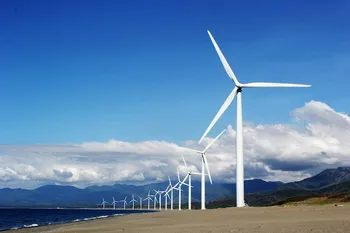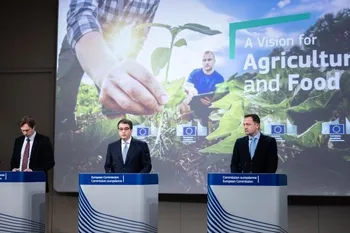 The ongoing crisis in Ukraine has resulted in incalculable damage, affecting millions of families and businesses across the continent. Critical infrastructure has been fractured and the capacity for key industries to continue to meet EU needs on the ground remains under threat. However, there is some good news.
The ongoing crisis in Ukraine has resulted in incalculable damage, affecting millions of families and businesses across the continent. Critical infrastructure has been fractured and the capacity for key industries to continue to meet EU needs on the ground remains under threat. However, there is some good news.
Through a number of bespoke and rapidly-deployed funding instruments, Europe has got out in front of the worst of the effects on critical enterprises across the region, offering vital support to keep these core sectors running. The State aid Temporary Crisis and Transition Framework (TCTF) is an excellent example of how the EU is battling the worst of Russia's aggression on EU industry, particularly in the agriculture, fisheries and aquaculture sectors.
Extended support under the TCTF
On 2 May 2024, the Commission announced a partial extension to aid offered to this initiative, ensuring there's a helping hand for these embattled enterprises heading into December 2024. The extended assurance of up to €280,000 for enterprises in the agricultural sector and up to €335,000 for the fisheries and aquaculture sectors is a welcome announcement, having the dual effect of supporting investment while further distancing the EU's dependence on Russian imports.
'The Commission shows again its ability to act quickly and allow Member States more time to provide necessary support to help farmers and fishers that still face specific challenges,' stated Executive Vice-President Margrethe Vestager.
The prolongation offers desperately needed breathing room for these sectors as they combat lingering disruptions caused by the conflict in Ukraine - including fractured supply chains, soaring energy costs, and trade impacts. However, the extension is more limited than some may have hoped, as a significant amount of support will expire as planned as of 30 June 2024. This includes:
- Section 2.1, allowing Member States to grant limited amounts of aid for all sectors other than agricultural primary production, fisheries and aquaculture;
- Section 2.4, allowing Member States to grant aid to compensate for high energy prices;
- Sections 2.2 and 2.3 on liquidity support in the form of State guarantees and subsidised loans, and section 2.7 on measures aimed at supporting electricity demand reduction have already phased-out on 31 December 2023.
The good news, however, is that sections 2.5, 2.6 and 2.8 -- aimed at accelerating the green transition and reducing fuel dependencies -- will continue as planned until 31 December 2025.
Background - tailored but temporary support
The TCTF first emerged in March 2022 as the Temporary Crisis Framework, rapidly deployed to enable national support measures responding to the economic shocks of Russia's invasion. It was subsequently amended and expanded, most recently in March 2023 as the new TCTF, with provisions to accelerate the green transition.
While agriculture and fisheries sections received a lifeline, the amendment does not extend other crisis response measures that were part of the original framework, such as general limited aid amounts for non-agri sectors, aid for high energy costs, liquidity support schemes and electricity demand reduction. These will expire by 30 June 2024 at the latest.
It also remains to be seen how this aid will be implemented by Member States, as there seems to be some acknowledgement that SMEs in these sectors may be left in the cold, decreasing competition as a whole (with the capacity to have a deleterious effect on market share, and therefore consumer prices).
De minimis increase - more flexibility for small support
In tandem with prolonging agricultural aid ceilings, the Commission is revising the Agricultural De Minimis Regulation, which allows national governments to grant small amounts of state aid without prior notification. The current €20,000 ceiling for companies in the agriculture sector over three fiscal years will likely increase, potentially up to €25,000 according to proposed changes.
This move gives member states more flexibility to provide modest support rapidly to farmers struggling with inflationary pressures and high input costs. However, such relaxation - in general - can itself have tertiary effects. In a recent comment in tandem with his much-referenced Letta report, the former Italian Prime Minister warned that differing state capacity for such 'de minimis' aid could distort competition across the Single Market.
Advantages amid uncertainty, but gaps remain
The extension offers clear advantages by maintaining a financial buffer for key food production sectors as they navigate murky economic waters. This could help stabilise supplies and avoid deeper disruptions. However, legitimate concerns emerge around uneven impacts. By tailoring the prolongation solely to agriculture, fisheries and de minimis rules, the Commission implicitly acknowledges other sectors have rebounded better from Ukraine-induced shocks. This could leave some struggling businesses behind, particularly smaller firms unable to access streamlined de minimis aid.
Furthermore, the expiration of broad energy support tools removes a luxury Member States enjoyed in responding to the energy crisis exacerbated by Russia's aggression. They could have a knock-on effect with regard to risk, with forecasts still uncertain around future energy costs (though improving).
Ultimately, the extended provisions buy more time for strategic sectors to gather speed. But with considerable red tape around state aid still in place, gaps in coverage may persist between those able to access this lifeline and those left adrift.
For more information
Full press release: Commission adoption of limited aid extension
State aid Temporary Crisis and Transition Framework (TCTF)







